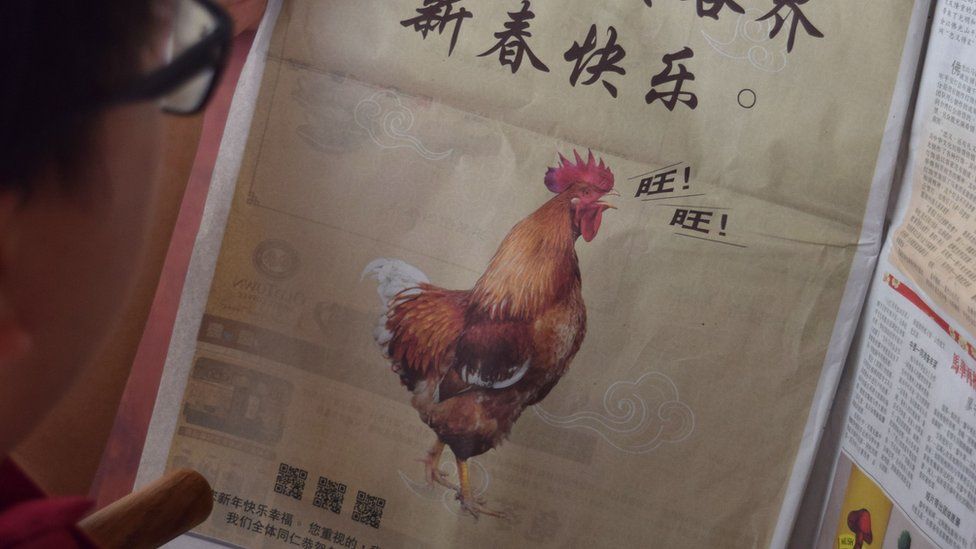Malaysia wishes wrong New Year with a barking rooster
- Published

The Malaysian government is facing ridicule after it took out a full-page advert to celebrate the Lunar New Year - featuring a barking rooster.
The Year of the Rooster - based on the Chinese zodiac - has just ended, giving way to the Year of the Dog.
The trade ministry's advert wished people a prosperous Year of the Dog - but showed a rooster emitting a dog's bark in Chinese.
The ministry apologised for the "technical error".
The cultural quagmire is complicated by a view held by some Malaysian Muslims that dogs are unclean animals.
Earlier this week, Reuters reported that Malaysian businesses were ignoring or playing down canine symbols - to avoid offending the Muslim majority. Ethnic Chinese make up about a quarter of the country's population.
That led many to think that the advert printed in Chinese language newspapers was a misguided attempt to avoid a picture of a dog - whether it made sense or not.
On Facebook, one user said the advert was "mere stupidity", while another called it a "national embarrassment".
Allow Twitter content?
This article contains content provided by Twitter. We ask for your permission before anything is loaded, as they may be using cookies and other technologies. You may want to read Twitter’s cookie policy, external and privacy policy, external before accepting. To view this content choose ‘accept and continue’.
Allow Twitter content?
This article contains content provided by Twitter. We ask for your permission before anything is loaded, as they may be using cookies and other technologies. You may want to read Twitter’s cookie policy, external and privacy policy, external before accepting. To view this content choose ‘accept and continue’.
Allow Twitter content?
This article contains content provided by Twitter. We ask for your permission before anything is loaded, as they may be using cookies and other technologies. You may want to read Twitter’s cookie policy, external and privacy policy, external before accepting. To view this content choose ‘accept and continue’.
English-language newspaper The Star quoted the chair of the Malaysian Chinese Association's religious harmony bureau as saying some were trying to "to make the Chinese angry" over simple mistakes.
"After the apology, the error was forgotten and there was no major upset among the Chinese community as the Chinese are a pragmatic lot and easygoing," Datuk Seri Ti Lian Ker told the newspaper.
He accused the opposition DAP party of stirring up "hate, resentment and anger".
You might also be interested in:
- Published16 February 2018
- Published16 February 2018